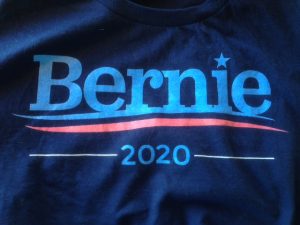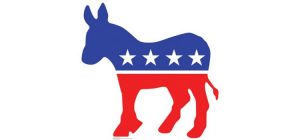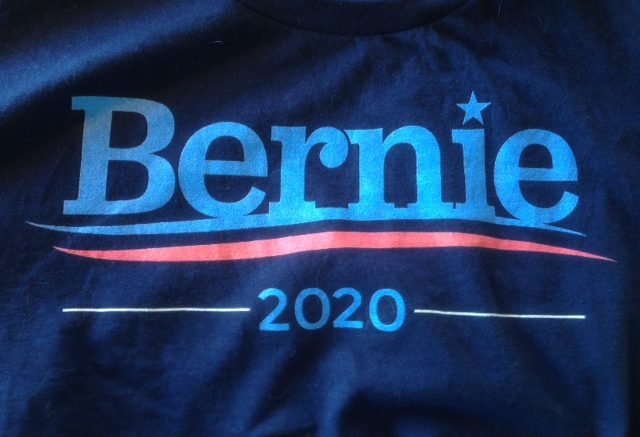
By Robert Reich
Common Dreams (2/19/19)
It’s easy to forget the condescension and amusement that greeted him when he announced his first campaign for president, on May 26, 2015.
How, it was asked, could a rumpled, 73-year-old, self-described Democratic Socialist – a junior senator from tiny Vermont, who was born in Brooklyn, Jewish, hadn’t even been a Democrat for most of his political career, and eschewed money from super PACs – possibly triumph against Hillary Clinton?
In the end, he didn’t. But he triumphed in other ways.
Bernie won a surprising 46 percent of the pledged delegates to the Democratic National Convention. His primary campaign whipped up a storm of enthusiasm among young people and grass-roots activists. He garnered over a million individual donations, including $20 million in January 2016 alone ($5 million more than Clinton), with an average individual donation of $27.
Bernie helped reveal a new and deeper political divide in America – between oligarchy and democracy. Rather than the size of government, he raised the more central question of who government is for.
Most importantly, he showed Democrats they could run successfully on policies like Medicare for all, free public higher education, and higher taxes on the wealthy – instead of the cautious “New Democrat” centrism of Bill Clinton, Al Gore, John Kerry, and Barack Obama.
No longer the only progressive in town
Bernie Sanders put “progressive” back into the Democratic Party of Franklin D. Roosevelt.
Now, ironically, his success four years ago may impede his second candidacy. Not only is he four years older, Bernie is no longer the only progressive in town.
Senators Elizabeth Warren and Sharrod Brown are pushing many of the same themes and drawing enthusiasm from many of the same quarters.
And partly because of his success at mobilizing and energizing Democrats in the 2016 primaries, a slew of other presidential hopefuls are approaching the 2020 primary campaign the same way – foregoing big money, talking up the importance of reviving democracy, using social media, and advancing ideas that would once have been considered too radical.
The conventional view is Bernie helped move the Democratic Party to the “left.”
Wrong. Even before his primary campaign, American politics was moving away from the old right-left spectrum that had distinguished “small-government” conservatives from “big-government” liberals.
Bernie helped reveal a new and deeper political divide in America – between oligarchy and democracy.
Rather than the size of government, he raised the more central question of who government is for.
Donald Trump rode a similar wave of populist anger at a political elite too cozy with big business and too concerned about its own survival to pay attention to average working people. But, as has become clear, Trump was a Trojan horse for the same oligarchy he condemned.
Threat of the American oligarchy
The American oligarchy is real. According to a study published in 2014 by Princeton Professor Martin Gilens and Northwestern Professor Benjamin Page, although Americans enjoy many features of democratic governance, American policymaking has become dominated by powerful business organizations and a small number of affluent Americans. The typical American has no influence at all.
This is largely due to the increasing concentration of wealth and economic power. In a recent research paper, one of my colleagues at Berkeley, Gabriel Zucman, found that the richest 1 percent of Americans now owns 40 percent of the nation’s wealth. That’s up from 25 to 30 percent in the 1980s.
The only advanced country Zucman found with similarly high levels of wealth concentration is Russia, whose oligarchy is notorious.
America has had an oligarchy once before – in the first Gilded Age, which ran from the 1880s until the first decades of the twentieth century.
Teddy Roosevelt called those oligarchs the “malefactors of great wealth,” and fought them by breaking up their monopolies and instituting a progressive federal income tax.
His fifth cousin, Franklin D. Roosevelt, reduced their power further by strictly regulating Wall Street and encouraging the growth of labor unions.
“Government by organized money is just as dangerous as Government by organized mob,” F.D.R. thundered in 1936. “Never before in all our history have these forces been so united against one candidate as they stand today. They are unanimous in their hate for me — and I welcome their hatred.”
By the end of World War II, the American oligarchy had dissipated – its wealth lost during the Great Depression, its power countervailed by government and unions.
But in recent years, the American oligarchy has returned.
Bernie Sanders has done more than any other politician in modern America to sound the alarm, and mobilize the public to reclaim our democracy and economy. For that alone, we owe him our enduring gratitude.
(This work is licensed under a Creative Commons Attribution-Share Alike 3.0 License.)
- Bernie Enters The 2020 Race With Defiant Anti-Trump Rhetoric — It’s official. The Bern is in. Ending a lengthy period of deliberation, Senator Bernie Sanders of Vermont, who won over 1,800 delegates and captured 43 percent of the Democratic Party vote in 2016, announced his candidacy in an email to supporters this morning. “Brothers and Sisters,” Sanders writes. “I have decided to run for president of the United States.” Sanders goes on to promise “an unprecedented and historic grassroots campaign” that will “begin with at least a million people from across the country.” The email contains a lengthy list of policy positions the senator is expected to elaborate upon in the coming weeks. … Read the Rest
(Commoner Call photo open sourece and free for non-derivative use with link to www.thecommonercall.org )
*****
It’s Bernie’s World. The Democratic Party Is Just Living In It

By Kate Aranoff
The Guardian (2/20/19)
Bernie Sanders declared on Tuesday that he will once again run for president. Whatever this election season holds for him, he’s already the most important candidate in the race.
Emerging seemingly out of nowhere, Sanders’s first Democratic primary run in 2016 brought tens of thousands of people – millennials especially – into the work of politics, not just to cast a ballot but to knock on doors and phone bank, host community meetings and wrangle straws in Iowa. Among them was the now representative Alexandria Ocasio-Cortez, who has credited her organizing on the Sanders campaign for helping to reignite her interest in politics.
Sanders didn’t win, of course. But the results of his campaign defied all conventional horse-race logic. The man widely expected to be little more than an off-brand Dennis Kucinich won 23 states and 47% of pledged party delegates. In all, over 13 million people voted for an avowed democratic socialist.
In the wreckage of Hillary Clinton’s historic loss, it became abundantly clear that the Democratic party’s center could not hold. Sanders – now joined by Ocasio-Cortez and a new generation of left-leaning politicians –have given a party that lacked ideas and momentum a new lease on life. Indeed, it’s painful to imagine what the Democrats would be doing without them. (Fighting for tax credits to put solar panels on Trump’s border wall, perhaps? Or lowering prescription drug prices for prisoners fighting wildfires in California? We can only speculate.) …

